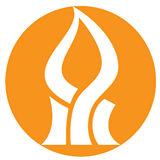预约演示
更新于:2025-05-07
PDL1 x VEGFR
更新于:2025-05-07
关联
4
项与 PDL1 x VEGFR 相关的药物作用机制 FGFRs拮抗剂 [+2] |
在研机构 |
原研机构 |
非在研适应症- |
最高研发阶段临床2期 |
首次获批国家/地区- |
首次获批日期1800-01-20 |
作用机制 PDL1调节剂 [+2] |
在研机构 |
原研机构 |
在研适应症- |
非在研适应症- |
最高研发阶段临床1期 |
首次获批国家/地区- |
首次获批日期1800-01-20 |
作用机制 PDL1抑制剂 [+1] |
在研适应症 |
非在研适应症- |
最高研发阶段临床前 |
首次获批国家/地区- |
首次获批日期1800-01-20 |
5
项与 PDL1 x VEGFR 相关的临床试验CTR20242660
一项多中心、开放标签、双队列II期临床研究:评价FH-2001胶囊联合斯鲁利单抗注射液治疗晚期实体瘤患者的安全性和初步疗效
安全性导入阶段主要目的:评价FH-2001胶囊联合斯鲁利单抗注射液在晚期肝细胞癌和胃癌患者中的安全性和耐受性。次要目的: 描述FH-2001胶囊联合斯鲁利单抗单次、多次口服给药后的药代动力学特征;评价FH-2001胶囊联合斯鲁利单抗注射液在晚期肝细胞癌和胃癌患者中的初步疗效。II期剂量扩展阶段主要目的:确定 FH-2001胶囊联合斯鲁利单抗注射液在晚期肝细胞癌的RP3D; 评价 FH-2001胶囊联合斯鲁利单抗注射液在晚期肝细胞癌和胃癌患者中的初步疗效。次要目的:评价 FH-2001胶囊联合斯鲁利单抗注射液在晚期肝细胞癌和胃癌患者中的安全性。
开始日期2024-10-30 |
申办/合作机构 |
ChiCTR2400088649
A multicenter, open-label, two-cohort, single-arm Phase Ib/II clinical study to evaluate the safety and preliminary efficacy of FH-2001 in combination with Serplulimab in subjects with advanced solid tumors
开始日期2024-10-28 |
申办/合作机构- |
100 项与 PDL1 x VEGFR 相关的临床结果
登录后查看更多信息
100 项与 PDL1 x VEGFR 相关的转化医学
登录后查看更多信息
0 项与 PDL1 x VEGFR 相关的专利(医药)
登录后查看更多信息
211
项与 PDL1 x VEGFR 相关的文献(医药)2025-04-08·Endocrine-Related Cancer
Sexual dimorphism in thyroid cancer: evidence from preclinical studies
Review
作者: Teliti, Marsida ; Rotondi, Mario ; Magri, Flavia ; Croce, Laura ; Caccavale, Paolo ; Chiardi, Isabella ; Greco, Alessia ; Coperchini, Francesca
2025-04-01·Immunity
Anti-vascular endothelial growth factor treatment potentiates immune checkpoint blockade through a BAFF- and IL-12-dependent reprogramming of the TME
Article
作者: Myojin, Yuta ; Telford, William ; Mayer, Christian T ; Kedei, Noemi ; Seifert, Matthias ; Lack, Justin ; Korangy, Firouzeh ; Rodriguez-Matos, Francisco ; Trehan, Rajiv ; Wang, Xin Wei ; Monge, Cecilia ; Budhu, Anuradha ; Villamor-Payà, Marina ; Greten, Tim F ; Levy, Elliot B ; Bauer, Kylynda C ; Xie, Changqing ; Benmebarek, Mohamed-Reda ; Soliman, Marlaine ; Huang, Patrick ; Oguz, Cihan ; Wood, Bradford J ; Kleiner, David E ; Ruf, Benjamin ; Ma, Chi
2025-03-01·Free Radical Biology and Medicine
Fasting enhances the efficacy of Sorafenib in breast cancer via mitophagy mediated ROS-driven p53 pathway
Article
作者: Li, Ru ; Sun, Hongbao ; Wang, Guan ; Ma, Yimei ; Pu, Yamin ; Luo, Min ; Xia, Yong ; Wang, Ningyu ; Wan, Xuanting ; He, Anqi
549
项与 PDL1 x VEGFR 相关的新闻(医药)2025-05-04
·药事纵横
声明:因水平有限,错误不可避免,或有些信息非最及时,欢迎留言指出。本文仅作医疗健康相关药物介绍,非治疗方案推荐(若涉及);本文不构成任何投资建议。NMPA发布2025年04月25日药品批准证明文件送达信息,本批次共有104个受理号获批,多款重磅新药新适应症获准上市,其中:奥赛康药业的利厄替尼片新适应症获批上市,用于具有表皮生长因子受体(EGFR)外显子 19 缺失(19DEL)或外显子 21置换突变(L858R)的局部晚期或转移性非小细胞肺癌(NSCLC)成人患者的一线治疗。利厄替尼是一款口服的第三代 EGFR-TKI,于 2025 年 1 月首次在国内获批上市,用于既往经 EGFR TKI 治疗时或治疗后出现疾病进展,并且经检测确认存在 EGFR T790M突变阳性的局部晚期或转移性 NSCLC 成人患者的治疗。2024 年 9 月 30 日,奥赛康与信达就利厄替尼达成独家商业化合作。信达取得合作产品在中国大陆地区的独家推广销售权,将按合作协议约定向奥赛康支付首付款、注册里程碑和销售里程碑款项。诺诚健华的奥布替尼片新适应症获批上市,一线治疗慢性淋巴细胞白血病(CLL)/小淋巴细胞淋巴瘤 (SLL)。奥布替尼是诺诚健华研发的一款不可逆布鲁顿酪氨酸激酶(BTK)抑制剂,可用于治疗淋巴瘤及自身免疫性疾病。2020年12月,奥布替尼在中国获批用于治疗复发/难治慢性淋巴细胞白血病(CLL)/小淋巴细胞淋巴瘤(SLL)、以及复发/难治性套细胞淋巴瘤(MCL)两项适应症。2023年4月,奥布替尼获批用于既往至少接受过一次治疗的边缘区淋巴瘤(MZL)患者。康方生物的依沃西单抗注射液新适应症获批上市,单药用于 PD-L1 表达阳性(PD-L1 TPS≥1%)的局部晚期或转移性非小细胞肺癌(NSCLC)的一线治疗依沃西单抗是一款 PD-1/VEGF 双特异性抗体,2024 年 5 月,依沃西单抗首次获批上市,适应症为联合培美曲塞和卡铂用于经 EGFR-TKI 治疗后进展的 EGFR 基因突变阳性的局部晚期或转移性非鳞状 NSCLC 患者的二线治疗。君实生物的特瑞普利单抗注射液新适应症获批上市,用于不可切除或转移性黑色素瘤一线治疗。特瑞普利单抗作为我国批准上市的首个国产 PD-1 单抗,已在国内获批 12 项适应症,包括黑色素瘤、鼻咽癌、尿路上皮癌/膀胱癌、食管鳞癌、非鳞状非小细胞肺癌、非小细胞肺癌、肾细胞癌、小细胞肺癌、三阴性乳腺癌、肝癌等适应症。锐康迪医药(Recordati集团中国全资子公司)申报的注射用双羟萘酸帕瑞肽微球获批上市,用于治疗无法手术或手术后未治愈和通过另一种生长抑素类似物治疗控制不佳的成人肢端肥大症患者。双羟萘酸帕瑞肽为第二代生长抑素类似物(SRL),生长抑素正是GH分泌的生理抑制剂。此前,双羟萘酸帕瑞肽已获得欧洲药品管理局(EMA)和美国FDA批准治疗成人肢端肥大症患者。辉瑞的阿昔替尼片新适应症获批上市,具体适应症尚未披露。公开资料显示,阿昔替尼是一种口服的,作用于血管内皮生长因子受体1,2和3的强效和高选择性酪氨酸激酶抑制剂,通过抑制血管内皮生长因子受体信号系统,全面阻止肿瘤进展。该产品最初于2012年获美国FDA批准上市,于2015年在中国获批,首个适应症为治疗既往接受过一种酪氨酸激酶抑制剂或细胞因子治疗失败的进展期肾细胞癌(RCC)的成人患者。阿斯利康的马来酸阿可替尼片新适应症获批上市,具体适应症尚未披露。阿可替尼是阿斯利康自主研发的第二代选择性BTK抑制剂。2024年11月,阿可替尼片剂剂型首次在中国获批,用于治疗既往至少接受过一种治疗的成人套细胞淋巴瘤(MCL)患者。强生的埃万妥单抗注射液新适应症获批上市,与卡铂和培美曲塞联合给药,适用于治疗携带表皮生长因子受体(EGFR)19号外显子缺失或21号外显子L858R置换突变且在EGFR酪氨酸激酶抑制剂治疗期间或之后疾病进展的局部晚期或转移性非鳞状非小细胞肺癌(NSCLC)成人患者。埃万妥单抗是一款全人源双特异性抗体,同时针对EGFR和MET两个靶点。这是埃万妥单抗今年在中国获批的第二个肺癌适应症,此前,埃万妥单抗已于今年2月获批用于治疗携带EGFR 20号外显子插入突变的局部晚期或转移性非小细胞肺癌成人患者的一线治疗。完整批件信息如下:
上市批准引进/卖出
2025-05-04
往期推荐产品动态依沃西一线治疗NSCLC获批上市(全球首个对比帕博利珠单抗获显著阳性结果的III期研究)产品动态美国重磅上市!派安普利单抗2个适应症获FDA批准上市,用于晚期鼻咽癌治疗产品动态康方生物爱达罗®(依若奇,IL-12/IL-23)治疗中重度斑块状银屑病适应症获批上市临床进展首个自研ADC澳洲临床入组!康方生物IO 2.0+ADC战略再进一步临床进展非肿瘤首个双抗|康方生物全球首创IL-4Rα/ST2(AK139)IND获受理,剑指呼吸系统及皮肤疾病领域临床进展依沃西方案对比替雷利珠方案1L治疗sq-NSCLC的Ⅲ期临床完成患者入组临床进展康方生物古莫奇(IL-17)单抗新药上市申请获NMPA受理数据发布荣登Nature Medicine!卡度尼利方案1L治疗胃癌Ⅲ期研究结果全文发表产品动态康方生物卡度尼利、依沃西纳入2024年国家医保目录临床进展头对头度伐利尤单抗方案,依沃西方案一线治疗胆道肿瘤III期临床完成首例患者入组临床进展全球首个CD47单抗实体瘤III期临床首例入组:依沃西联合莱法利一线治疗HNSCC(对比帕博利珠单抗)数据发布卡度尼利一线宫颈癌III期研究成果荣登《Nature Reviews Clinical Oncology》(影响因子高81.1)数据发布IGCS 2024 LBA & 《柳叶刀》主刊,卡度尼利1L宫颈癌III期研究PFS和OS双阳性结果重磅发布产品动态一线胃癌全人群获批!康方生物卡度尼利获批第二个适应症产品动态获FDA快速通道资格!依沃西国际多中心III期研究HARMONi完成入组,2L+EGFRm NSCLC数据发布全球首个对比帕博利珠单抗取得显著阳性结果的随机对照大III期研究——依沃西HARMONi-2重磅研究成果在WCLC发表临床进展康方生物卡度尼利联合方案治疗uHCC的III期临床研究完成首例患者入组临床进展针对PD-1/L1治疗进展晚期胃癌,卡度尼利+普络西(VEGFR-2)联合疗法Ⅲ期临床完成首例入组数据发布ASCO Oral & JAMA主刊丨Ⅲ期HARMONi-A研究重磅公布,依沃西疗法有望改变EGFR-TKI进展肺癌全球治疗标准临床进展史无前例!康方依沃西单药对比帕博利珠1L治疗PD-L1阳性NSCLC的III期临床获决定性胜出阳性结果产品动态康方生物双抗卡度尼利一线治疗晚期宫颈癌全人群的sNDA获CDE受理临床进展国际多中心注册性III期研究HARMONi-3中国启动:依沃西单抗联合化疗对比帕博利珠单抗联合化疗1L治疗sq-NSCLC产品动态高达50亿美金!康方生物与Summit就PD-1/VEGF双抗依沃西达成合作和许可协议产品动态全球首个肿瘤免疫治疗双抗——开坦尼®(PD-1/CTLA-4双抗,卡度尼利)获批上市
临床3期ASCO会议抗体药物偶联物上市批准临床结果
2025-05-03
点上方蓝字“ioncology”关注我们,然后点右上角“…”菜单,选择“设为星标”ELCC 2025 微专辑扫描二维码可查看更多内容在2025欧洲肺癌大会(ELCC)上,北爱沙尼亚医疗中心肿瘤内科医生、欧洲肿瘤内科学会(EORTC)肺癌组成员、欧洲肿瘤内科学会(ESMO)科学委员会成员Kersti Oselin作报告《小细胞肺癌的新型疗法和靶向治疗通路》,并接受《肿瘤瞭望》现场专访。Kersti Oselin教授在报告中总结了小细胞肺癌(SCLC)治疗的最新进展,聚焦新型治疗策略与靶点,指出抗体药物偶联物(ADC)、T细胞激活疗法(如BiTE、TriTAC)和抗血管生成药物(VEGF抑制剂)是有望进入临床的疗法。ADC药物的临床试验数据TROP-2靶向:TROPiCS-03试验中,戈沙妥珠单抗(sacituzumab govitecan,SG)二线治疗广泛期小细胞肺癌(ES-SCLC)的客观缓解率(ORR)为41.9%,中位总生存(OS)达13.6个月(WCLC2024,OA04.04)。中国学者研究的TROP-2靶向ADC药物SHR-A1921也在既往经治ES-SCLC患者中显示出令人鼓舞的疗效,中位随访时间5.3个月时,在15例可评估肿瘤反应的患者中,ORR为 33.3%,中位缓解持续时间(DoR)为 4.4 个月。在所有患者中,中位无进展生存(PFS)为 3.8 个月(WCLC 2024, OA04.05)。B7-H3靶向:II期IDeate-Lung01试验中期分析显示,在12mg/kg和8mg/kg剂量组中,ifinatamab deruxtecan(I-DXd)治疗复发性转移性ES-SCLC患者的ORR分别为54.8%和26.1%,中位OS分别为11.8个月和9.4个月(WCLC 2024,OA04.03)。在I期ARTEMIS-001研究中,靶向B7-H3的ADC药物HS-20093采用8.0mg/kg剂量的ORR为61.3%,采用10.0mg/kg剂量的中位PFS为7.3个月(WCLC 2024,OA04.06)。SEZ6靶向:I期首次人体研究显示,ABBV-011用于复发/难治性SCLC患者在1mg/kg剂量扩增阶段(n=40)的ORR为25%(Morgensztern et al. Clin Cancer Res 2024;30:5042–52)。经治广泛期小细胞肺癌的ADC治疗数据挑战:当前研究多为小样本、非对照试验,缺乏可以筛选患者的生物标志物,未能明确靶点表达水平与疗效的关联。T细胞激活疗法(DLL3靶向)Delta样配体3(DLL3)是一种在小细胞肺癌中高表达的蛋白质,是T细胞介导最有前景的靶点。Rovalpituzumab tesirine(Rova-T)是最早进入临床的DLL3靶向药物,这种ADC的临床研发已终止。其他靶向DLL3的新型药物包括双特异性T细胞接合剂(BiTE)和三特异性T细胞活化蛋白构建体(Tri-Tac)。DLL3也是CAR-T细胞治疗的主要靶点。BiTE药物:Tarlatamab是一种靶向SCLC细胞上DLL3的BiTE药物。Ib期DeLLphi-303研究中,Tarlatamab联合PD-L1抑制剂作为ES-SCLC一线维持治疗的中位PFS为5.6个月,9个月OS率88.9%(WCLC 2024, OA10.04)。Obrixtamig(BI764532)是另一款靶向DLL3的BiTE药物,目前处于临床开发阶段。TriTAC药物:目前在SCLC治疗展现前景的药物包括HPN328(MK-6070)等。小结:多种靶向DLL3的BiTE疗法正在临床开发中。细胞因子释放综合征是50%患者的主要治疗相关不良事件(TRAE),大多为1-2级且可控。抗血管生成治疗(VEGF抑制剂)III期BEAT-SC试验中,化疗+阿替利珠单抗基础上加用贝伐珠单抗未显著改善ES-SCLC患者的OS(Ohe Y, et al. J Clin Oncol 2024;42(suppl):Abstr 8001)。III期ETER701试验中,安罗替尼+贝莫苏拜单抗(PD-L1单抗)+依托泊苷/卡铂(EC)一线治疗ES-SCLC的中位OS达19.3个月,相比对照组(安慰剂+依托泊苷/卡铂)延长了7.4个月,显著降低死亡风险39%(Cheng Y et al. Nature Medicine 2024;2967)。Ib期试验结果显示,依沃西单抗联合EC化疗一线治疗ES-SCLC的ORR为80%(JTO February 2025, P233-239)。总结ES-SCLC一线维持治疗:EP化疗+PD-(L)1抑制剂+研究药物方案展现前景,在ETER701试验中,安罗替尼+贝莫苏拜单抗的中位OS达19.3个月;经治ES-SCLC:Tarlatamab基于II期非对照DeLLphi-301试验结果已获FDA批准,中位OS为17.5个月;经治复发/难治ES-SCLC:小型非对照I-II期研究中,新型药物的ORR为30%-60%,中位PFS为4-7个月(靶点为TROP2、B3-H7、SEZ6、DLL3)。哪些新型药物和疗法在小细胞肺癌治疗中最有前景,有望进入临床治疗?Dr. Oselin:我们对小细胞肺癌的研究进展感到兴奋。在历经诸多治疗失败后,我们终于看到了隧道尽头的曙光。在我的报告中,我重点梳理了去年及今年初发表的研究结果和演讲报告。我讨论的主要治疗类别是抗体药物偶联物(ADCs)、各类T细胞活化机制以及血管内皮生长因子受体(VEGFR)相关疗法。当然,这三类疗法并非小细胞肺癌独有,在非小细胞肺癌领域也有相关研究,但两种疾病的靶点选择存在差异。 (上下滑动可查看)Dr. Oselin: I am Kersti Oselin. I am a medical oncologist from North Estonia Medical Center in Tallinn, Estonia. I have been a member of the EORTC Lung Cancer Group, and also a member of ESMO for over ten years. It is my great pleasure to be part of the ESMO Scientific Committee and to contribute to the European Lung Cancer Conference.I think everyone is a bit excited at the moment. After so many failures in the treatment of small cell lung cancer, there seems to be light at the end of the tunnel. In my presentation, I tried to focus on the latest publications and presentations from last year and earlier this year. I think the main therapeutic classes we are discussing are ADCs, various mechanisms of T-cell activation and maybe the VEGFRs. These are three main therapeutic classes. Of course, they are not unique to small cell lung cancer. We can talk about the same classes for non-small cell lung cancer, but for SCLC, we have slightly different targets.请谈一谈广泛期小细胞肺癌治疗的未来研究方向。Dr. Oselin:当ES-SCLC患者一线治疗进展后,疾病基因组的异质性会加剧,治疗难度也会更大。因此,如果必须做出选择,我认为ES-SCLC的未来治疗方向是强化一线治疗——无论是一线采用化疗-免疫联合治疗后接续免疫联合维持治疗,还是替换现有疗效欠佳的一线免疫方案。 为了显著改善疗效,我们必须聚焦一线治疗。铂类化疗的问题不在于患者对药物没有反应(多数患者反应良好),而在于复发后疾病性质改变,进而导致治疗难度加大。我将希望寄托于强化一线治疗方案以提升疗效。(上下滑动可查看)Dr. Oselin: Once patients have already progressed on first-line treatment, the disease is even more genomically heterogenous, and likely very difficult to treat. So, if I needed to choose, I think the way forward is to intensify first-line treatment, whether it is in combination with chemo-IO followed by IO combinations in the maintenance setting, or replacing the current already less effective IO upfront. To significantly improve outcomes, we need to focus on first-line. The problem with platinum-based chemotherapy is not that the patients don’t respond (the majority respond very well), but when they relapse, it is a different disease and more difficult to treat. I would rather put my hopes on intensifying and improving outcomes in the first-line setting.(来源:《肿瘤瞭望》编辑部)声 明凡署名原创的文章版权属《肿瘤瞭望》所有,欢迎分享、转载。本文仅供医疗卫生专业人士了解最新医药资讯参考使用,不代表本平台观点。该等信息不能以任何方式取代专业的医疗指导,也不应被视为诊疗建议,如果该信息被用于资讯以外的目的,本站及作者不承担相关责任。
抗体药物偶联物临床1期细胞疗法免疫疗法临床结果
分析
对领域进行一次全面的分析。
登录
或

Eureka LS:
全新生物医药AI Agent 覆盖科研全链路,让突破性发现快人一步
立即开始免费试用!
智慧芽新药情报库是智慧芽专为生命科学人士构建的基于AI的创新药情报平台,助您全方位提升您的研发与决策效率。
立即开始数据试用!
智慧芽新药库数据也通过智慧芽数据服务平台,以API或者数据包形式对外开放,助您更加充分利用智慧芽新药情报信息。
生物序列数据库
生物药研发创新
免费使用
化学结构数据库
小分子化药研发创新
免费使用


